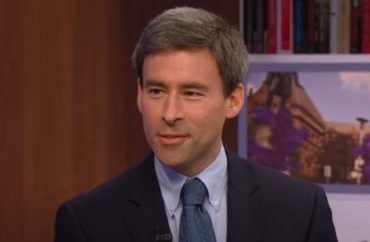
Results actually show white and Asian professors can be at disadvantage
A paper claiming racial minority professors face discrimination in academia is further proof that science publishing has embraced low standards and political correctness, according to a social scientist.
The Nature Human Behavior study has drawn criticism by the social scientist, Eric Kaufmann, for its faulty methodologies and misconstrued findings. However, the questionable nature of the results did not stop publications including Science and Inside Higher Ed from sharing the results.
The paper concluded these minority professors “received 7% more negative votes and are 44% less likely to receive a unanimous vote at the college level of the [promotion and tenure] process.”
But the authors set up the data in such a way to get results they wanted, according to Kaufmann, a political scientist at the University of Buckingham. The paper is just part of how “junk science is being used to prop up DEI,” as he titled his analysis essay.
He reviewed the data and found “black and Hispanic scholars are much less productive than White and Asian scholars, controlling for scholarly discipline and years as an academic.”
The study also found “Black and Hispanic candidates for full professor are significantly more likely to get promoted for their level of publications and grants than White or Asian candidates.” But Kaufmann said this finding is “downplayed” throughout the paper.
He provided further comments to The College Fix on his criticism of the paper and the scientific publishing industry.
Kaufmann (pictured) told The Fix via email that this paper was able to evade high levels of scrutiny because it “resonate[d] with the ideological priors of … reviewers and editors.”
He also said that while “the authors’ work is technically fine… they buried their strongest associations in favor of a fringe finding based on a handful of data points which may have been due to chance.”
In his Substack post, Kaufmann noted that papers like this just add to “the mountain of junk that makes up the replication crisis in the social sciences.”
When asked what steps could be taken to prevent more papers like this from being published, Kaufmann said it is essential to get “less ideological and [a] more rigorous set of editors and reviewers” running these academic journals.
Kaufmann told The Fix that he has not had any communication with the paper’s authors since publishing his criticism.
Nature’s communications manager Kevin Hurler declined to comment to The Fix.
The Fix asked if the editors and reviewers had read Kaufmann’s critiques and if they could comment on his claims.
The Fix also reached out to the paper’s listed contacts, Professor Juan Madera, on Nov. 14 and Dec 2. to see if Kaufmann missed anything in his analysis. The University of Houston professor did not respond
The Fix also directed this same inquiry to Theodore Masters-Waage, Christine Spitzmueller, Michelle Penn-Marshall, Erika Henderson, Peggy Lindler, Cynthia Werner, and Tracey Rizzuto, the other co-authors on the paper, but received no response in the past two weeks.
MORE: Wayne State asks ’employer partners’ to make ‘DEI pledge’
IMAGE: The Agenda With Steve Paikin/YouTube
Like The College Fix on Facebook / Follow us on Twitter






Please join the conversation about our stories on Facebook, Twitter, Instagram, Reddit, MeWe, Rumble, Gab, Minds and Gettr.